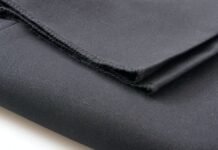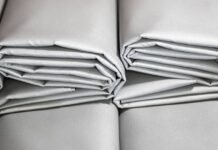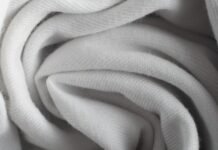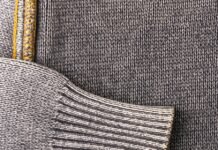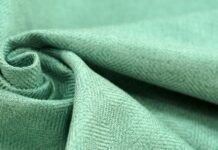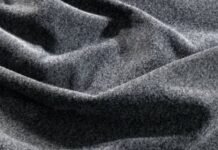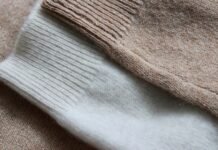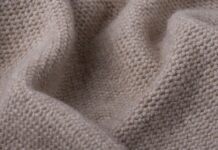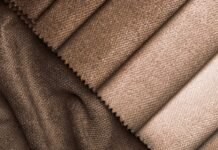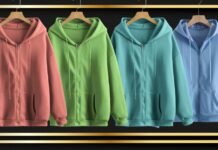Eco Jersey Blog Source of Premium and unique Content
Explor Articles
- All
- Awareness Days
- Business Insights
- Cotton fabric
- Eco Leather
- Fabric Comparison
- Fabrication
- Fashion & Styling
- Featured Articles
- International Events
- Jackets
- Linen fabric
- Natural and Synthetic Fibers
- News
- Outdoor Wear
- Polyester Fabric
- Product Guide
- Recycled & Organic Fabrics
- Sports
- Sustainability
- Sustainable Clothing Guide
- Synthetic and Semisynthetic fibers
- Textiles
More
Polar Guard Heat Retention Fabric: Comfort Meets Performance
Winter weather can feel harsh, especially when wind and moisture hit together. That is why people now prefer smart thermal textiles instead of heavy...
Frost Core Insulated Fabric: Ultimate Winter Warmth Solution
Winter clothing has changed a lot in recent years. People now want warmth without heavy layers. They also want comfort, flexibility, and breathable protection....
Snow Silk Luxe Winter Weave: Softness Meets Superior Warmth
Snow Silk Luxe Winter Weave is quickly becoming a top choice in premium winter clothing. It combines luxury softness with powerful insulation for cold...
Ice Barrier Windproof Fabric: Advanced Shield Against Cold
Winter wind often feels more painful than snowfall. It moves fast, enters clothing gaps, and steals body heat within minutes. That is why modern...
Frost Flex Stretch Thermal Fabric: Warmth Meets Flexibility
Winter weather creates serious challenges for daily life and outdoor comfort. Cold winds, freezing temperatures, and snow make it difficult to stay warm without...
Premium Shirt Style Leather Jacket for Casual and Formal Looks
A high quality button down leather jacket is now one of the most elegant wardrobe staples for young and fashionable people. Unlike most parka jackets, this...
Grey Leather Jacket – Stylish & Versatile Outerwear for Every Look
A grey leather jacket is one of the classiest pieces for current fashion forward ladies. Black and brown leather jackets will always be cool, but...
Felted Grade C Cashmere Fabric Durable & Affordable
The Felted Grade C Cashmere wool strikes a balance between luxury and practicality while still being affordable. Cashmere is traditionally associated with high-end fashion, exclusivity...
Brushed Grade C Cashmere Fabric Explained
The Brushed Grade C cashmere fabric wool is an affordable entry to the world of Cashmere. It offers softness, warmth and a pleasing visual...
What Is Winter Lock Performance Fabric? Features & Benefits
What Is Winter Lock Performance Fabric? It is a modern winter performance fabric designed for cold weather comfort. It keeps your body warm while...
Benefits of Knitted Grade C Cashmere Fabric
Knitted Grade C Cashmere Fabric wool is a versatile fabric that offers affordability, softness and versatility. It may not have the ultra-fine fibres of the...
Woven Grade C Cashmere: Features & Benefits
The Woven Grade C Cashmere wool strikes a balance between elegance, affordability and durability. Woven Grade C Cashmere is a great alternative to the premium...
Types of Grade C Cashmere Wool Fabric Guide
The Grade C Cashmere Wool Fabric is an affordable entry into the world luxury textiles. It is a lower-grade cashmere wool fabric, but it offers...
The Essential Pullover Plain Hoodie: Style Guide
In fashion, there are few true wardrobe essentials, but few garments can match the legendary status of the pullover plain hoodie. It is a...
The Essential Zip-Up Plain Hoodie for Everyday Style
Surely there is no better apparel option than a zip-up plain hoodie when it comes to enjoying a perfect mix of comfort and functionality....
✨ Join the Sustainable Revolution.
Discover Eco Jersey’s premium sustainable clothing for conscious individuals and custom solutions for visionary brands.

